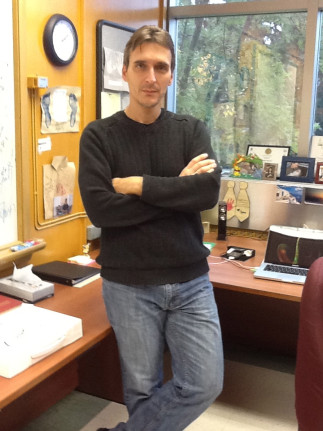Nikolas Provatas, McGill University, Department of Physics and Centre for the Physics of Materials, 3600 University, Montreal, Quebec, H3A-2T8, Canada
We review recent mathematical and numerical innovations in quantitative multi-scale modeling of microstructure evolution in multi-component metal alloys. We begin with a brief review of the phase field methodology and the role it has played in predicting solidification microstructure evolution under experimentally relevant casting conditions. Diving down to the atomic scale, we then review a new hybrid phase field/atomistic methodology, coined the phase field crystal (PFC) method. The PFC approach has emerged in recent years as an attractive alternative to molecular dynamics for incorporating atomic-scale effects on diffusional times scales that govern most phase transformation. These effects include, elasticity, dislocation interaction and flow and polycrystalline boundaries. We present the latest developments of the PFC paradigm in applications involving structural transformations in N-component alloys. We highlight applications of the model to grain growth under forced driving, solute clustering, defect stability and solute trapping. We also discuss techniques for connecting PFC models to higher-level continuum models.
Site web du groupe du Prof. Provatas
Cette conférence est présentée par le RQMP Versant Nord du Département de physique de l'Université de Montréal et le Département de génie physique de Polytechnique Montréal.

